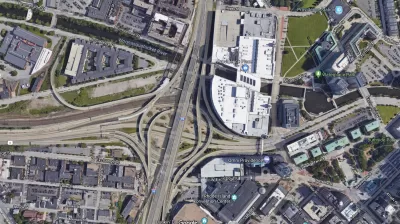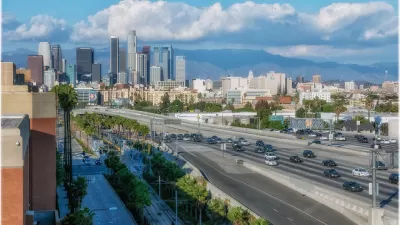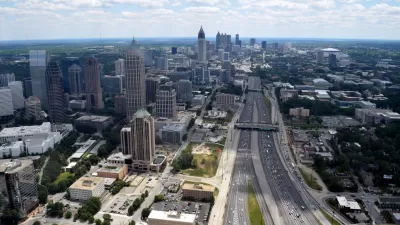The erroneous belief that the negative impacts of interstate highways are simply "unintended consequences" fails to demand accountability for the project's failures.

Writing in The Metropole, Sarah Jo Peterson argues that the popular origin story of the American interstate highway system is, at its core, a myth. "The myth goes something like this: the Interstate Highways were intended to be a system for intercity (or interstate) travel, but they had unintended effects for cities because they became used inappropriately for travel within urban areas." This myth, Peterson writes, perpetuates several erroneous beliefs: that "everything bad about the Interstates in cities is actually the fault of urban renewal and city leaders;" that "analyses of costs dictated which neighborhoods fell to the bulldozers;" and that despite initial mistakes, "public protests in the 1960s brought needed reforms."
Continued acceptance of this myth, Peterson claims, "prevents the industry from having to directly confront the sins committed in the name of the Interstate Highways, most significantly against Black Americans." The danger, she writes, is that the myth and the silence surrounding it "shape American transportation policy and practice in unacknowledged ways" to this day. Despite repeated attempts by the federal government to address historical injustices in transportation policy, the needle hasn't moved significantly where the communities affected by freeway construction are concerned.
Peterson traces the problematic myth to a U.S. Department of Transportation brief written in 1976, which became embedded in transportation planning curriculum. The author, Peterson claims, "actively constructed an alternative history," continually citing displacement and the other effects of urban freeways as "unintended" consequences.
"Weiner’s key studies—and more—are now online for all to see. Five reports, two published before 1956 and three shortly after, show that in no sense was the Interstate System intended only for intercity travel. Moreover, the assertion that the consequences of the Interstates in urban areas were 'unintended'—at least for what they called the 'total transportation needs' of the metropolis and the displacement of minority communities—is untenable. Top leaders anticipated these impacts, and yet the efforts they made to address them fell short."
Ultimately, Peterson argues that historical analysis is crucial to understanding and undoing the inequities of past and present transportation policies. "The federal government was–and always will be–a leader both in developing the Interstate System and in how its history is remembered. The federal government also needs to be a leader in helping the transportation industry understand the impacts of its history."
FULL STORY: The Myth And The Truth About Interstate Highways

Maui's Vacation Rental Debate Turns Ugly
Verbal attacks, misinformation campaigns and fistfights plague a high-stakes debate to convert thousands of vacation rentals into long-term housing.

Planetizen Federal Action Tracker
A weekly monitor of how Trump’s orders and actions are impacting planners and planning in America.

San Francisco Suspends Traffic Calming Amidst Record Deaths
Citing “a challenging fiscal landscape,” the city will cease the program on the heels of 42 traffic deaths, including 24 pedestrians.

Adaptive Reuse Will Create Housing in a Suburban Texas Strip Mall
A developer is reimagining a strip mall property as a mixed-use complex with housing and retail.

Study: Anti-Homelessness Laws Don’t Work
Research shows that punitive measures that criminalized unhoused people don’t help reduce homelessness.

In U.S., Urban Gondolas Face Uphill Battle
Cities in Latin America and Europe have embraced aerial transitways — AKA gondolas — as sustainable, convenient urban transport, especially in tricky geographies. American cities have yet to catch up.
Urban Design for Planners 1: Software Tools
This six-course series explores essential urban design concepts using open source software and equips planners with the tools they need to participate fully in the urban design process.
Planning for Universal Design
Learn the tools for implementing Universal Design in planning regulations.
Heyer Gruel & Associates PA
JM Goldson LLC
Custer County Colorado
City of Camden Redevelopment Agency
City of Astoria
Transportation Research & Education Center (TREC) at Portland State University
Jefferson Parish Government
Camden Redevelopment Agency
City of Claremont





























